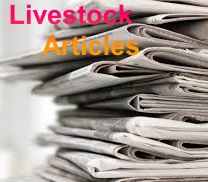Developing A Good Knowledge Of Feed And Supplements
Developing a good knowledge of feed and supplements
By Shane Brody | 13 December 2024 | 5:30 am
Many of the larger manufacturers of livestock feed and supplements offer helpful advice booklets, which can sometimes be found at farmer supply stores and co-operatives. Take advantage of them, says Shane Brody.
Cattle, poultry and pigs require different forms of nutrition during different seasons of the year and different stages of their lives.
Even dogs usually require more protein in their diets as they’re growing into adulthood, and this stands to reason because they’re in an active growth phase and are building important muscles and even immunity functions within their biological systems.
The larger livestock feed and supplement manufacturers in South Africa have very handy advice booklets that are sometimes available at farmer supply stores and co-operatives.
If you’re serious about making headway as a communal farmer or emerging commercial farmer, I advise that you get your hands on these booklets when you can, as they offer a wealth of information on livestock feed and supplements.
The advice therein not only refers to what products and nutrients are needed for certain livestock during different times of the year but, very importantly, offers precise ‘recipes’ for how supplementary feed should be mixed with grains and other additives like salt.
It is vitally important for you to stick to this mixing and feeding advice, because certain feed and additives contain potentially dangerous compounds like urea that, if offered to livestock incorrectly, can result in losses.
There are also certain feed additives that can be fatal to horses or pigs. Make sure that you are aware of what species of farm animals can ingest or eat the feed or supplements that you purchase.
It is also important to know that certain supplements intended for mixing into other raw materials like maize or bran should not be fed ‘neat’, as ingesting too much of a strong, concentrated supplement can cause problems for your livestock.
If a product is referred to as being a ‘complete’ feed, this typically means that livestock can be fed solely on it, as it contains all the necessary roughage, vitamins, trace elements and so forth. Such feed is usually used in feedlot-type situations.
Correct quantities
Importantly, instruction booklets will also advise you on what quantities of feed or supplementation are needed for certain classes of animals on a daily basis.
If you either overfeed or underfeed your animals, you are defeating the purpose of offering them added nutrition.
Livestock should finish all the feed in their troughs before they’re offered more, as wasted feed leads to economic losses.
If you are feeding ‘lamb and ewe’ pellets to your goats or sheep, try to a ‘creep feeding’ area that only kids or lambs can access and put some of the feed in this area, as greedy mothers may keep their young away from the feed.
Water must always be available
The availability of clean, cool and fresh water during feeding is also crucial because feed that contains compounds like salt can lead to immense thirst and other biological problems if the animals don’t have enough water to drink.
Also remember that feed or supplements containing urea can become dangerous to livestock if water accumulates in feeding troughs during rain or irrigation.
Generally, if you’re not running a very well organised and well equipped feedlot that covers all shade, water and nutritional requirements, livestock that receive feed supplementation should still be able to graze on natural veld where shade is also available, particularly during the warm summer months.
Adding important vitamins
It is also important to remember that injectable supplements and drenching products are not quick-fix solutions to nutritional shortfalls. They are, however, useful for providing livestock with added essential vitamins and trace elements from time to time.
Essentially, livestock still require good grazing and nutritional supplementation in order to maintain good digestive and biological systems.
When using products like broiler and laying mash in your chicken or egg farming operation, be sure to use reputable brands that are registered for such use, because such feed is precisely formulated by animal scientists to perform certain production tasks.
Most cattle, poultry and pig feed contains certain minerals or even medications that prevent certain problematic biological processes from occurring.
Shane Brody is involved in an outreach programme aimed at transferring skills to communal farmers.








